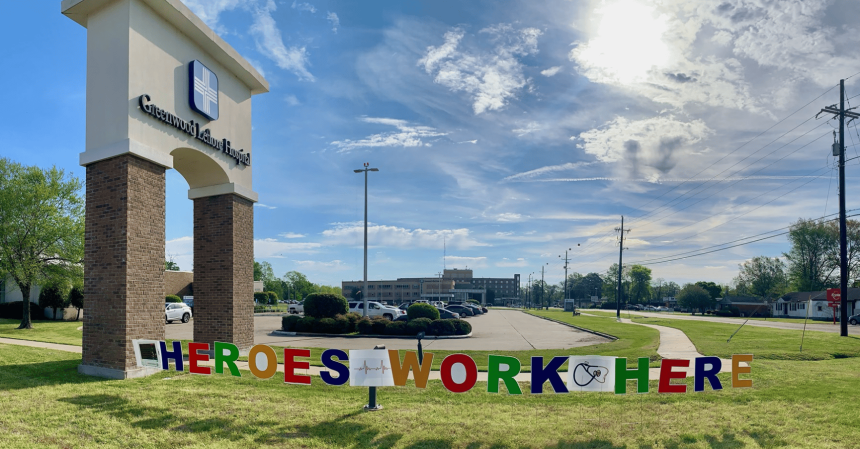Greenwood Leflore Hospital, which has been at the forefront of Mississippi’s ongoing hospital crisis, will remain open until at least 2024 after being on the brink of full closure earlier this year.
In a memo sent to GLH employees this week, interim CEO Gary Marchand informed his staff that the hospital’s owners have agreed to an extended $10 million line of credit in place to support ongoing operations.

On top of the credit extension, GLH is set to receive around $925,000 from the state legislature once the new fiscal year begins on July 1. This is in addition to $2.1 million from the Mississippi Hospital Access Program and $722,713 from the Disproportionate Share Hospital Program allocated to GLH earlier this month.
While Marchand said the funds are helpful in the short term, the extended line of credit expected to be available within the next 30 to 60 days is the primary reason the hospital will be able to keep its doors open for the foreseeable future.
“While the Medicaid supplemental payments and emergency relief funds help in the near term, it is the line of credit that will assure service availability into 2024,” Marchand told SuperTalk Mississippi News in an email. “The Medicaid and emergency relief funds combined will sustain one month’s operations.”
In 2022, GLH was forced to close a number of services – including labor and delivery, urology, neurosurgery, and COVID-19 – while laying off roughly 150 employees. Officials then attempted to get the University of Mississippi Medical Center to take over with negotiations coming to an end due to financial challenges facing the healthcare industry as a whole.
“The financial realities of providing healthcare services are impacting both organizations,” a statement from the hospital read after negotiations were terminated by UMMC.
Although leaders in the health industry continue to advocate for full Medicaid expansion as a possible solution for hospitals fighting closure, Marchand said the idea would have helped in the past but is now “too little, too late” for the situation GLH finds itself in.
“In terms of where COVID left GLH’s cash reserves, Medicaid expansion is too little, too late,” Marchand said. “Future changes to Medicaid payment programs for Mississippi’s small and rural hospitals need to be considered so that their capital infrastructure cost can be protected, given their volume limitations and ever-increasing infrastructure costs.”
As GLH looks past Jan. 2024, Marchand said the next step in having a chance to stay open is receiving critical access hospital status.







